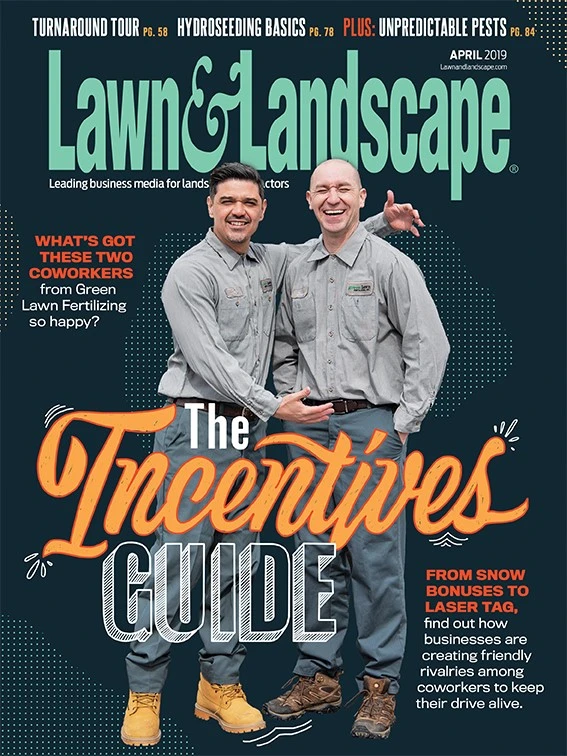Cream of the Crop features a rotating panel from the Harvest Group, a landscape business consulting company.
The role of account managers in the landscaping industry is a critical path function. Account managers are the only ones (other than the owner/president, division manager/branch manager) who touch all of the primary segments of your business, including management and organization, sales, client management, marketing and branding.
There are some hybrids and variations on the theme, but account managers typically follow two models.

1. The production-focused account manager is where most of this begins. This model will typically be responsible for the following tasks or processes:
- Supervising operational crews
- Managing clients’ properties
- Selling extras or enhancements
- Renewing contracts
This job is tough to fill as it requires skill sets in two divergent areas – the nuts and bolts of operations and the nuanced skills of client relations and sales. When companies are small and growing, this role is put into play resulting from two imperatives:
- The company cannot afford multiple roles.
- The owner is more directly involved in the day-to-day functions and can better support the people in these roles.
2. The client relations-focused account manager tends to develop as companies grow and the complexities of finding and keeping the production focused type become increasingly more difficult.
This model will typically be responsible for the following tasks or processes:
- Prospecting and selling base contracts
- Developing and maintaining client relationships
- Selling extras or enhancements
- Renewing contracts
- Interfacing with field production managers and their teams
This job type results as companies grow and separate the production-focused role into two separate job functions – the client-focused account manager and the field production manager.
Your first step as an owner is to identify which type of account manager you have or should have in place. Next, identify the action steps for development and training.
The action steps should follow this trajectory:
- Build a plan (short, intermediate and long term)
- Develop detailed job descriptions and identify pivotal duties
- Create a career ladder that lays out a road map for achieving upward mobility
- Develop an employee accountability platform or process
- Develop a guiding strategy
- To reinforce good organizational behavior
- To avoid reinforcing bad organizational behavior
- Develop the training protocols for each type of focus
The training protocols should be grouped into three areas:
- The areas both types share because this will serve as the training program for the production-focused account manager as well as the field production manager.
- The areas that are exclusive to the client-focused account manager.
- The areas that are exclusive to the production focused account manager.
The overarching training protocols can or should look like this. NOTE: This is an approximate list. Actual items should be determined by each organization.
- Duties and accountabilities
- Organizational and operational duties
- Sales and marketing duties
- Financial duties
- HR people duties
- Quality control duties
- Personal effectiveness
- Timelines and imperatives
- Results and outcome expectations
- Training topics
- Sales and marketing:
- Estimating and pricing
- Client needs assessments
- Sales presentations
- Understanding competitive advantage
- Understanding market segments
- Networking and interacting with trade associations
- Specifications
- Client relations:
- Retention and renewals
- Quality control
- Relationship management
- Jobsite walkthroughs
- Conflict resolution
- Operations:
- Safety
- Productivity
- Routing and scheduling
- Materials management sourcing and staging
- Managing vendor relationships
- Rotation mapping and work flow plans
- Sub-contractors
- Production rates
- Plant, turf and tree health care
- Internal reporting systems
- People:
- Interviewing
- Progressive discipline
- Employee reviews
- Termination process
- Employee development
- Coaching/mentoring
- Conflict resolution
- Technical Training Program:
- Agronomic basics
- Irrigation basics
- Horticultural basics
- Equipment:
- Preventative maintenance
- Crew set-ups
- Managing vendor relationships
By now, it’s clear the role of account manager touches all aspects of your organization. For your account managers to become high-performance business people, you must develop and implement a program such as this.

Explore the April 2019 Issue
Check out more from this issue and find your next story to read.
Latest from Lawn & Landscape
- Project EverGreen helps revitalize Milan Park in Detroit
- Trex Company wins Product of the Year, Judges’ Choice Winner at Environment+Energy Leader Awards
- General Equipment & Supplies in Fargo adds Takeuchi equipment
- Mariani Premier Group acquires Hazeltine Nurseries
- EnP Investments adds Mark McCarel as Northeast territory sales manager
- Our April issue is now live
- Ready or not
- Tribute to an industry guru





